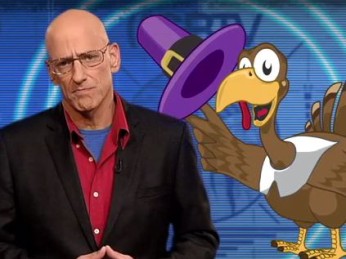 One of my favorite cultural commentators is the inimitable Andrew Klavan, an award-winning fiction author, screenwriter, and all-around witty fellow. (His videos at Truth Revolt are enlightening and hilarious.) For a long time, he has been banging the drums for conservatives to become engaged in the culture, and in a recent PJ Media piece he states something that many of his fellow conservatives would surely think counterintuitive:
One of my favorite cultural commentators is the inimitable Andrew Klavan, an award-winning fiction author, screenwriter, and all-around witty fellow. (His videos at Truth Revolt are enlightening and hilarious.) For a long time, he has been banging the drums for conservatives to become engaged in the culture, and in a recent PJ Media piece he states something that many of his fellow conservatives would surely think counterintuitive:
I feel strongly that a new American culture is already on the way. I read it in books, see it at the movies, read it online and find it in everyday life more and more. My work—and my love—is the arts, but the new culture won’t just be built there. It will be built in the way we treat our spouses, the way we raise our kids, and the way we tell the stories of our country and our lives.
It’s common for conservatives to get defensive and argue that everything is going to hell in a handbasket, but that simply isn’t true. Complaining about cultural rot is a cliché, and a boring one.
I see a parallel with what has happened in American government over the last six years. When President Obama was elected, it was a very dark time for those devoted to limited government and respect for the nation’s Constitution and other founding documents.
The wave of that election felt like a tsunami; but something funny happened on the way to the progressive Utopia, that fundamental transformation of America that Obama promised a few days before that election: reality. It just refuses to cooperate with the progressive vision of a smooth-running, top-down, bureaucratic welfare state piloted by “the best and the brightest.”
That vision doesn’t do any better on the cultural side. As Jonah Goldberg recently argued, reality is fundamentally conservative, and today’s American popular culture reflects that in numerous ways. Pop culture has to have a certain plausibility, a visible connection to live as it is really lived, in order to reach the greatest number of people. And most Americans even today still operate under the assumption that there is such a thing as human nature and that it places some limits on people’s practicable aspirations, as of course do physical circumstances. Pop culture reflects this because it has to in order to speak to a large audience.
In fact, we see people exploring and coping with those practical limitations on human endeavor throughout history and in literature and the other arts. And what those works indicate is that the story of the human race tells us that the effort to “fundamentally transform” human nature and the human condition by force is a fool’s errand. Powerful people in control of large sectors of American popular culture have long tried to deny that, but the market eventually speaks and corrects them. I believe, with Klavan and Goldberg (and The American Culture editor S. T. Karnick, who has been saying this for years), that we are seeing exactly that today.


Thanks, Ross. Could not agree more!
Great piece Mike. I also see that American culture is already changing for the better. For many years, our culture has encouraged people to fill their life with distractions and “tune out.” I see more and more people working to limit distraction and live intentionally — to allocate their time and resources to things they truly value. What those “things” are varies person to person, of course, but the encouraging point is that people are showing initiative again. Sitting on the couch waiting to be entertained by some new distraction does not result in a happy life. Pursuing dreams does.